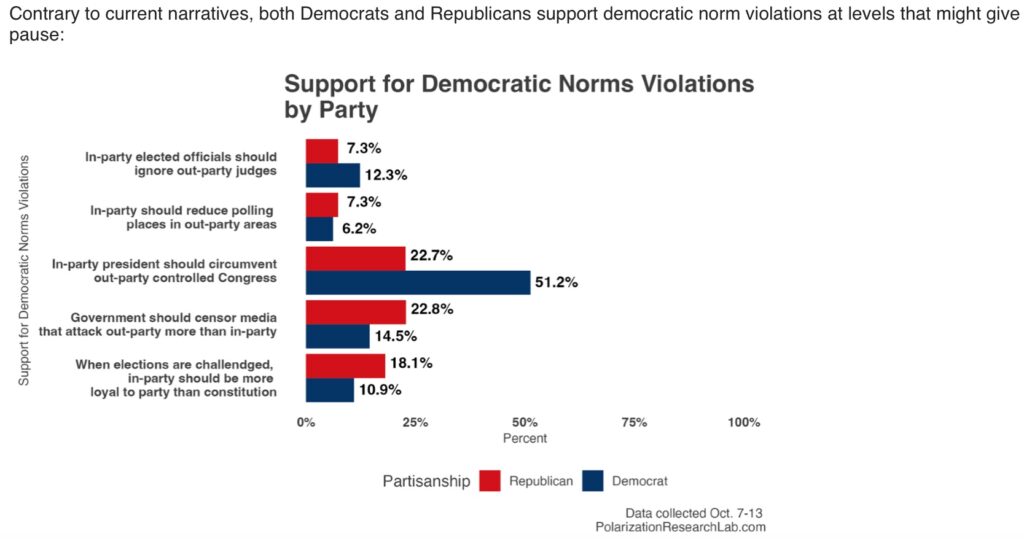Americans are worried about polarization and what it means for our friendships, families, and, certainly, our society. For people to come together to solve pressing challenges, we need to trust each other.
Is that coming together possible in our current moment? From what we’re reading, the answer is yes. We think we’re more divided than we actually are.
Here’s the good news: Republican and Democrats tend to perceive larger divisions between themselves and members of the other party than what exist. That’s something Populace Co-Founder Todd Rose discussed in his latest book, Collective Illusions, and it’s a problem several scholars are investigating.
According to research from Dartmouth, Stanford, and University of Pennsylvania’s, Polarization Research Lab (PRL), by a factor of four Americans overestimated members of the opposing party’s willingness to violate civic norms, for example. RealClearScience recently featured a study by Florida State University scholar that found Republicans and Democrats’ perceptions of each other were vastly out of step with reality.
And, now, a new study published in Scientific Reports by Samantha Moore Berg, director of the University of Pennsylvania’s Peace and Conflict Neuroscience Lab at the Annenberg School for Communication, found “both Democrats and Republicans personally value core democratic characteristics, such as free and fair elections, but severely underestimate opposing party members’ support for those same characteristics.” Berg authored a 2021 study that reached a similar conclusion.
The bad news is that our incorrect perceptions could turn into a self-fulfilling prophecy: when people feel their so-called opponents don’t respect civil norms, they’re more likely to violate civil norms themselves.
When asked by PRL if their party’s president should “circumvent” Congress if it is controlled by the opposing party, 51.2 percent of Democrats and 22.7 percent of Republicans said yes. When asked if the government should censor the media if it attacks one party more than the other, 22.8 percent of Republicans and 14.5 percent of Democrats said yes. And 18.1 percent of Republicans and 10.9 percent of Democrats said that, when elections are challenged, party members should be more loyal to their party than the U.S. constitution. That data is from from October 7-13, 2022.

Philanthropy can play a vital role in addressing polarization by supporting research that explores peoples’ differences — and what binds them. It also can invest in innovative solutions that bridge divides. The Charles Koch Foundation works with social entrepreneurs and scholars like the Polarization Research Lab and Berg who are closest to the problem and who have developed innovative solutions that can be scaled.
To find more about our work:
- Read about our support for the Polarization Research Lab and read our Q&A with its scholars
- Check out our Q&A with Samantha Moore Berg
- Find out how one scholar at Berkeley and other nonprofit organizations are trying to reduce polarization
- Learn about our commitment to fostering free speech and peace.







